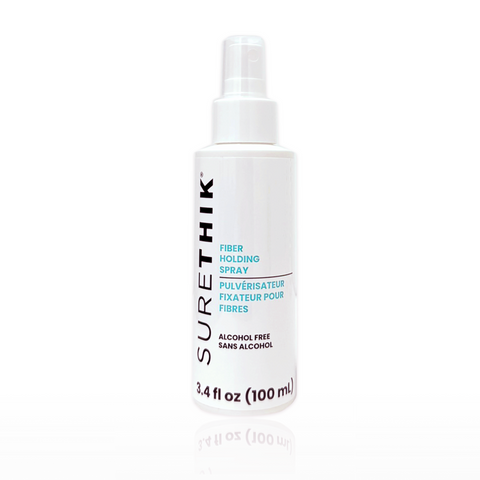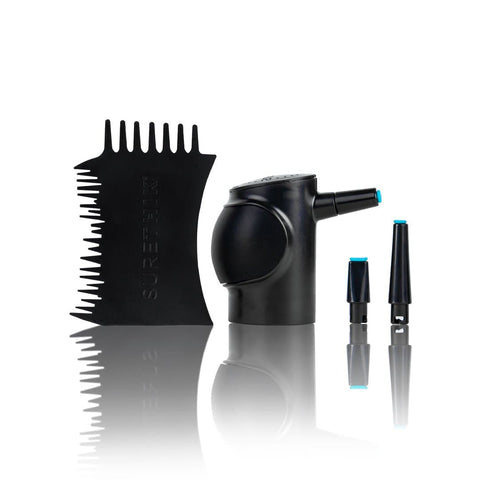
Menopause and Hair loss: All You Need To Know
Everyone expects mood swings, sleep loss, and especially hot flashes as a woman goes through the hormonal changes of menopause. Hair thinning can occur during and after menopause for some women, which can be shocking. The protective effects of female hormones can wane when women's hormone levels fall gradually over time. Androgens can gradually weaken your hair follicles and cause hair loss, depending on your hereditary risk and sensitivity. Other factors can contribute to menopausal hair loss, so it's crucial to find and treat the source of the problem rather than just treating the symptoms.
It is commonly said by doctors that most women experience hair thinning rather than bald areas. The hair on the front, sides, and top of the head can thin. During brushing and showering, hair may also fall out in huge clumps. Read more for more information.
THE AFFECTS OF MENOPAUSE:
Why might your hair be affected by menopause? Hormones, of course, are the answer. A lack of estrogen may result in a dull mane. While diminishing hormone levels may be the most evident cause, other variables may also be at play. The following are some examples:
- Autoimmune Disease
- Stress
- Thyroid disorders
- Low Iron

It's easy to see why hair loss prevention is so vital. Hair is a vital element of many women's identity, confidence, and self-esteem. When hair loss has a negative impact on your self-esteem, it might lead to sadness, anxiety, or social seclusion. Hair loss is caused by a decrease in estrogen and progesterone levels during menopause. The production of estrogen and progesterone decreases during menopause, resulting in hair loss. Hair grows quicker and stays on the head longer when these hormones are present. Hair grows more slowly and gets significantly thinner when estrogen and progesterone levels fall.
SIGNS OF HAIR LOSS AND HAIR THINNING:
Hair thinning is a frequent concern among women as they become older. This hair condition is classified as a mild to moderate instance of hair loss. Thinning hair, unlike hair loss that is already common, does not always result in baldness. The issue is that it makes your hair appear thinner in some areas of your head.
- Excessive usage and application of color treatments, relaxers, and perms, among other treatments, is referred to as overtreating hair.
- Unmanaged stress excessive stress can cause cortisol, a stress hormone, to rise dramatically in your body. It is extremely possible that if you generate too much of it, it will harm fresh hair development.
- There's more hair on your brushes, pillow, shower or sink drains, and the floor.
WAYS TO HELP DECREASE THE AMOUNT OF HAIR LOSS OR HAIR THINNING:
Problems with ageing hair, particularly hair loss and thinning hair, can cause worry, anxiety, and even social seclusion in many women. Self-esteem and confidence are also affected. While hormones and heredity can be blamed, there are certain aspects that can be changed, such as lifestyle and environment.
Here are a few things you can do to boost your hair's health and appearance:
- Pulling your hair back into a tight ponytail, up-do, or braid, or twisting it in any manner, is not a good idea. Pulling on the roots can damage the follicle, resulting in permanent hair loss.
- Wash your hair on a regular basis, but not too often. While it's important to remove dead skin, excess oil, and product buildup to encourage hair development, don't over-dry your hair and scalp by over-washing it or using a cleaning shampoo. SureThik Shampoo cleans deep into the pore to remove build-up, which is essential for healthy hair and scalp regeneration. Our tri-cleansing ingredients unclog pores and offer thorough cleaning, removing excess sebum and debris that can be damaging to the follicle. The hair is smooth and manageable after treatment. Antioxidants help to strengthen hair that is weak or damaged from the roots up. Hair and scalp are left feeling clean and revitalized.
- Make sure you're eating a nutritious plant-based diet that includes nutrients that support strong, healthy hair growth. Protein, Omega-3 fatty acids, complex carbohydrates, biotin, iron, zinc, Vitamin A, Vitamin C, Vitamin D, Vitamin E, and flavonoids are among these nutrients. The best way to get nutrients is through food, but if you believe you have a vitamin or mineral deficit, talk to your doctor about supplementing.
WHAT IS THE RATE OF HAIR LOSS DURING MENOPAUSE?
Menopause hair loss is quite frequent, believe it or not. Hair loss or bald patches affect up to two-thirds of postmenopausal women. Hair loss after menopause is prevalent in all ethnic groups. Genetics is also considered to have a role in hair thinning after menopause. You're more likely to suffer thinning hair during menopause if you have a family member who has experienced it.

TEMPORARY FIX:
Hair Building Fibers are fantastic for anyone who wishes to conceal their thinning hair problem. These keratin-derived fibres are safe and blend seamlessly with your own hair to give it a thicker, fuller appearance. SureThik hair fibers is a one-of-a-kind organic keratin protein complex that has been finely sliced into micro-sized fibres. These tiny hair strands add remarkable density, volume, and complete covering to your current hair and scalp. SureThik is comprised of the same organic keratin protein that makes up your natural hair. For both men and women, it is a fully safe and natural treatment.






